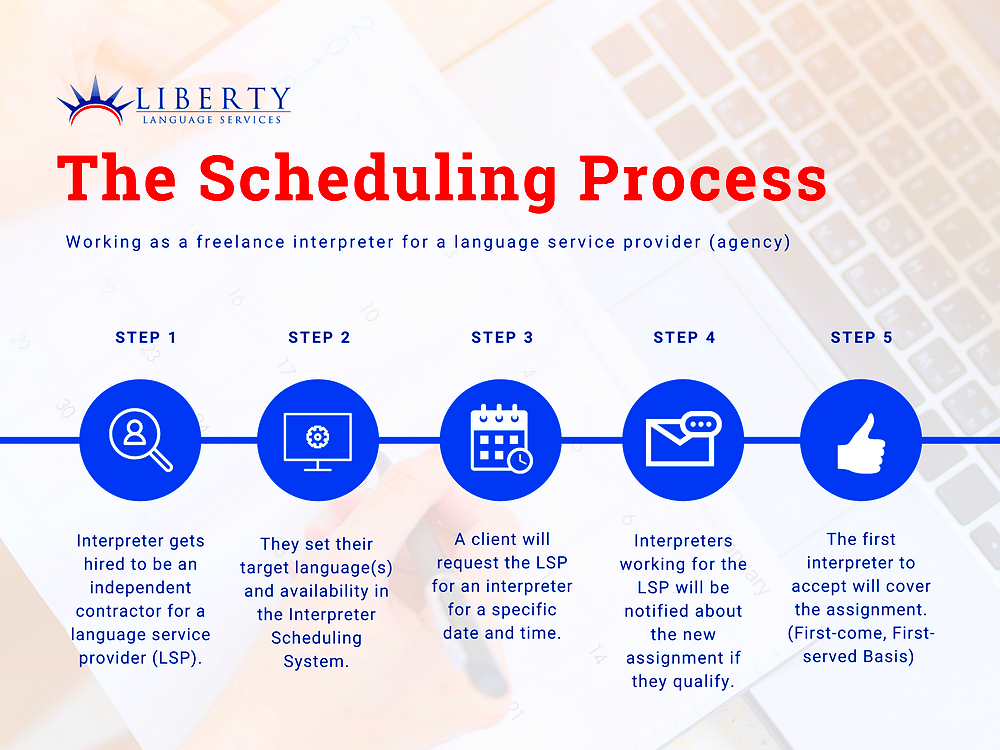Freelance interpretation is a growing field that allows skilled professionals to work on their own terms. As businesses, governments, and individuals interact across language barriers, the demand for interpreters has increased. Unlike translation, which involves written content, interpretation focuses on spoken language. Freelance interpreters have the flexibility to choose projects, work from anywhere, and set their schedules. However, they must also manage their clients, contracts, and billing. It’s an ideal career for people who love languages and want to be part of the global conversation.
Skills Required for Freelance Interpreters

To become a successful freelance interpreter, certain skills are essential. These include both language proficiency and interpreting techniques. Here are some key skills you need:
- Fluency in Two or More Languages: You must be fluent in at least two languages, both in speaking and understanding. Your skill level should allow you to interpret accurately in various settings.
- Good Listening Skills: Interpreters must listen attentively to understand the context and nuances of what’s being said in the source language.
- Quick Thinking: Interpreters must quickly process information and convey it in the target language, often with very little time to pause or think.
- Cultural Understanding: Being familiar with the cultures of both languages is crucial for accurately interpreting idiomatic phrases, customs, and cultural references.
- Accuracy: Interpreters must be precise and convey every detail in both languages without adding or omitting information.
- Confidentiality: Interpreters often work with sensitive information and need to maintain client confidentiality at all times.
Also Read This: How to Change Your Rating on Fiverr: A Step-by-Step Guide
How to Build Your Freelance Interpreter Profile

Building a strong freelance interpreter profile is the key to attracting clients and establishing a successful career. Your profile will be your first impression, so it’s essential to showcase your skills and experience in the best possible light. Here’s how you can get started:
- Create a Clear Resume: Highlight your language skills, education, certifications, and any interpreting experience. Mention specific industries you specialize in, like medical, legal, or business interpreting.
- Join Freelance Platforms: Platforms like Fiverr, Upwork, and Freelancer can help you connect with clients looking for interpreters. Make sure to include a detailed description of your services, along with your rates and availability.
- Get Certifications: Certification from recognized organizations like the American Translators Association (ATA) or National Association of Judiciary Interpreters and Translators (NAJIT) adds credibility to your profile and increases your chances of getting hired.
- Build a Portfolio: Include any past interpretation work, testimonials from clients, or recordings of you interpreting (if possible). This will give potential clients a better idea of your abilities.
- Set Competitive Rates: Research the market to set rates that reflect your experience and the complexity of the projects you take on. Be transparent about your pricing and make sure clients understand what they are paying for.
- Market Your Services: Share your profile on social media, join interpreter networks, and attend industry events to network with potential clients. Word of mouth can also be a powerful tool in this industry.
Also Read This: Exploring the World of Freelance Marketplaces: How Many Fiverr-Like Websites Are There?
Where to Find Freelance Interpretation Jobs

Finding freelance interpretation jobs requires a mix of online platforms, networking, and direct outreach. Fortunately, there are numerous opportunities available across various sectors like business, healthcare, legal services, and more. Here’s where you can start your search:
- Freelance Platforms: Websites like Fiverr, Upwork, and Freelancer.com are great for beginners. You can create a profile and apply for job listings posted by clients looking for interpreters.
- Interpreter Agencies: Some agencies specialize in freelance interpretation. These agencies often have established networks of clients and can provide consistent work. Some popular agencies include LanguageLine Solutions and TransPerfect.
- Language-Specific Websites: Websites such as ProZ.com cater specifically to language professionals, offering job boards and networking opportunities within the interpreting community.
- Social Media & Forums: LinkedIn, Facebook groups, and Reddit communities can be good places to network and find leads. There are many groups dedicated to interpreting jobs where potential clients post job requests.
- Direct Outreach: Another effective method is reaching out to companies or organizations directly. Hospitals, law firms, international corporations, and even government agencies may need interpreters for meetings or events.
- Conferences and Events: Attend industry conferences or networking events related to language services. These events can lead to direct job offers or partnerships with agencies looking for freelance interpreters.
Also Read This: How to Set Up a Seller Account on Fiverr
Setting Your Rates as a Freelance Interpreter
Setting your rates as a freelance interpreter is one of the most critical aspects of running a successful business. Your rates depend on various factors such as language pairs, specialization, experience, and the complexity of the project. Here’s a breakdown to help you determine your rates:
- Understand the Market Rates: Research the typical rates in the industry. For example, the average rate for a general interpreter may range from $20 to $50 per hour, while legal or medical interpreters can charge $50 to $100 per hour or more. Rates may vary based on your location and the language pair you offer.
- Specialization: If you specialize in a niche field such as medical, legal, or technical interpreting, you can charge higher rates because these fields require specific knowledge.
- Consider Your Experience: New interpreters may start with lower rates to build a portfolio, while experienced interpreters can justify charging higher fees based on their expertise.
- Hourly vs. Per-Project Rates: Many interpreters charge by the hour, but for longer projects, you may choose to charge per day or per session. It’s important to clarify how you calculate your rates with each client.
- Emergency and Rush Jobs: Consider adding a premium for urgent or last-minute interpretation requests. These jobs often require you to adjust your schedule, so charging a higher rate for them is standard.
- Additional Costs: Don’t forget to factor in costs such as travel, parking, or equipment rentals when setting your rates. Transparent pricing ensures there are no surprises for the client.
Also Read This: How to Unpause Your Gig on Fiverr: A Step-by-Step Guide
Tips for Successful Freelance Interpretation Work
Being a successful freelance interpreter isn’t just about language skills; it’s about professionalism, organization, and communication. Here are some tips to help you thrive:
- Always Prepare: Whether it’s a business meeting or a medical consultation, make sure you’re familiar with the topic, terminology, and context. Pre-reading materials and researching industry-specific vocabulary will make the interpretation process smoother.
- Maintain Professionalism: Be on time, dress appropriately for the setting, and communicate clearly with your clients. A professional demeanor can lead to repeat business and referrals.
- Manage Your Time: Freelancers often juggle multiple clients. Use tools like calendars, project management apps, and reminders to stay organized and avoid double-booking.
- Develop Strong Relationships: Building rapport with clients helps secure long-term work. Keep your clients updated on your availability, be responsive to inquiries, and deliver quality work every time.
- Invest in Continuous Learning: Language and interpreting techniques evolve, so stay updated with new skills and certifications. Attend workshops or webinars and join professional organizations like the American Translators Association (ATA).
- Set Clear Terms: Before starting any job, agree on the scope of work, deadlines, and payment terms. A well-written contract or agreement ensures both parties are on the same page and avoids misunderstandings.
- Know When to Say No: As a freelancer, you may face situations where you need to decline work. If a project isn’t a good fit, or if you’re overbooked, it’s better to be honest with clients than to deliver poor-quality work.
Also Read This: Freelance Writers’ Charges Per Article and Per Word
Common Challenges Freelance Interpreters Face
While freelancing as an interpreter offers many advantages, it also comes with its own set of challenges. Understanding and preparing for these obstacles can help you navigate the freelance world more effectively. Here are some common difficulties you may face:
- Inconsistent Work: Freelance interpreters often deal with fluctuating workloads. Unlike traditional jobs, the amount of work you receive can vary from week to week, which makes managing finances more challenging.
- Setting Competitive Rates: Determining how much to charge can be tricky. If you charge too little, you may not earn enough; too much, and you may scare off potential clients. Finding the right balance is key to a successful freelancing career.
- Dealing with Difficult Clients: Sometimes, clients may have unreasonable expectations or be difficult to work with. Setting clear terms upfront and maintaining professionalism is essential in these situations.
- Managing Time and Deadlines: As a freelancer, you have to juggle multiple clients and projects. Without proper time management, it’s easy to become overwhelmed and miss deadlines.
- Lack of Job Security: Freelancers don’t have the safety net of benefits like health insurance or paid vacation. You’re responsible for your own financial stability, which can be stressful, especially during slow periods.
- Working in Noisy or Uncomfortable Environments: Sometimes, interpreting in less-than-ideal conditions (like crowded spaces or poor acoustics) can make the job difficult. Investing in quality equipment and choosing your jobs wisely can help mitigate this challenge.
Also Read This: How to Search for a Job on Fiverr
Conclusion
Freelance interpreting can be a rewarding and flexible career, but it requires skill, dedication, and the ability to adapt to challenges. By continuously improving your language skills, building a strong profile, and staying organized, you can enjoy a successful career as a freelance interpreter. Remember, while the road may not always be easy, the freedom and variety that freelancing offers are unmatched. As you gain more experience, you’ll find that the benefits outweigh the obstacles.
FAQs
1. How do I get started as a freelance interpreter?
To get started, you need to be fluent in at least two languages. Build a professional profile on freelance platforms like Fiverr or Upwork, join interpreter agencies, and network with potential clients. Getting certifications in specific fields like medical or legal interpretation can also help boost your credibility.
2. What equipment do I need to work as a freelance interpreter?
At a minimum, you’ll need a reliable computer, high-quality headphones, a microphone, and a stable internet connection. For specific types of interpretation, you might also need specialized equipment like a soundproof booth for conference interpreting.
3. How much can I charge as a freelance interpreter?
Rates vary depending on factors like language pair, industry specialization, and experience. General interpreters typically charge $20 to $50 per hour, while specialized interpreters in legal or medical fields may charge higher rates, ranging from $50 to $100 per hour or more.
4. Do I need certification to work as a freelance interpreter?
While certification is not always required, it can significantly enhance your job prospects. Certifications from professional organizations, such as the ATA or NAJIT, can improve your credibility and make you more attractive to potential clients.
5. How do I find clients as a freelance interpreter?
You can find clients through freelance job boards, language-specific websites like ProZ.com, networking at industry events, or by directly reaching out to businesses, law firms, or hospitals that require interpreting services.




